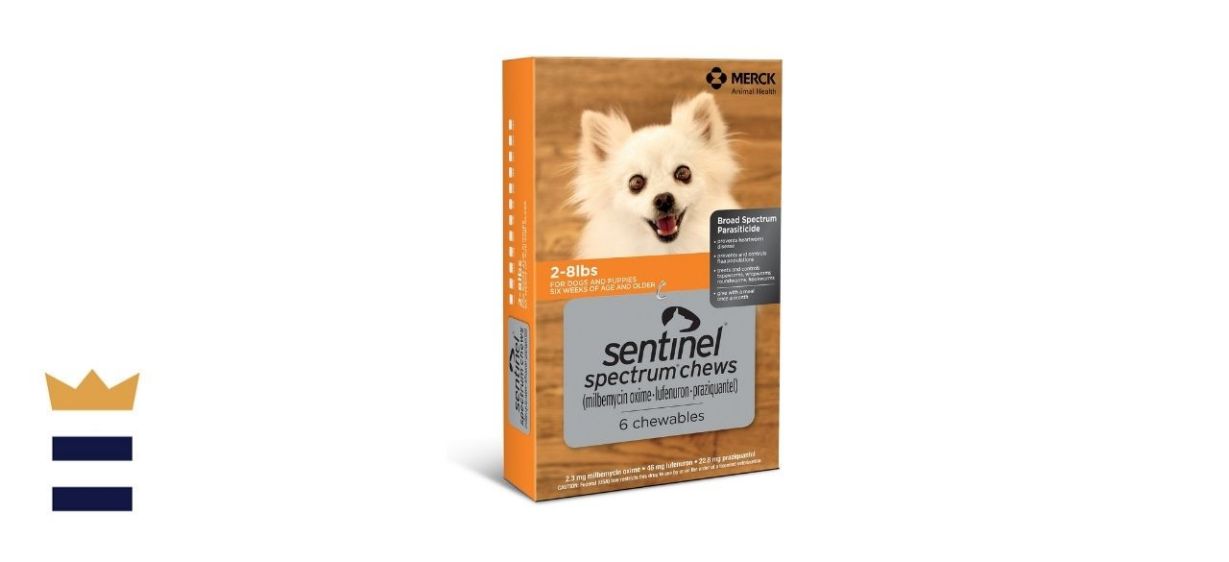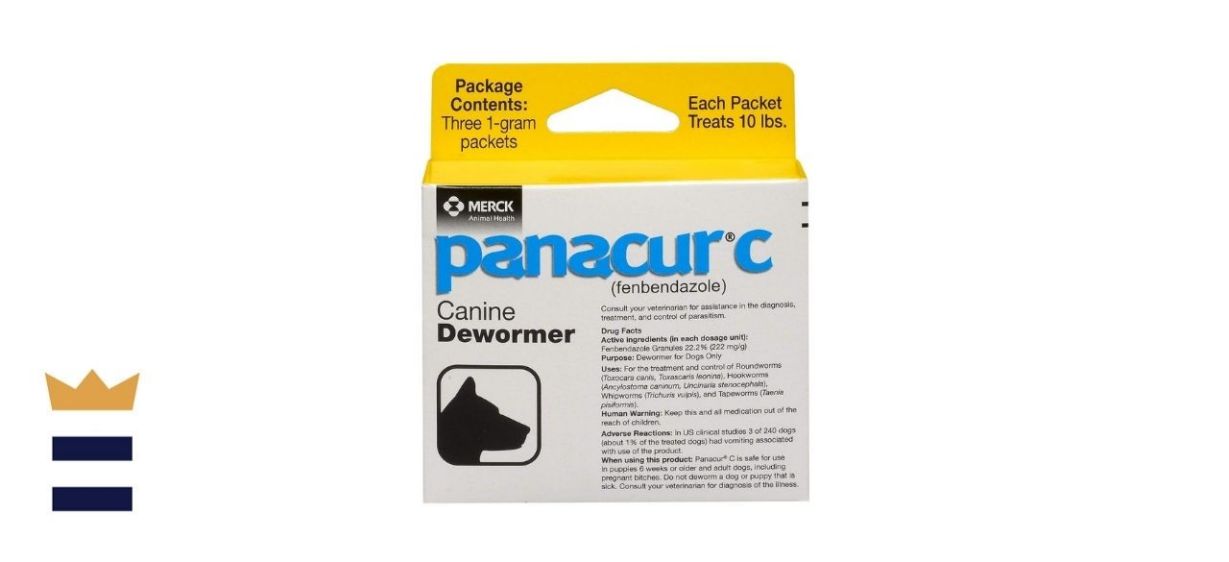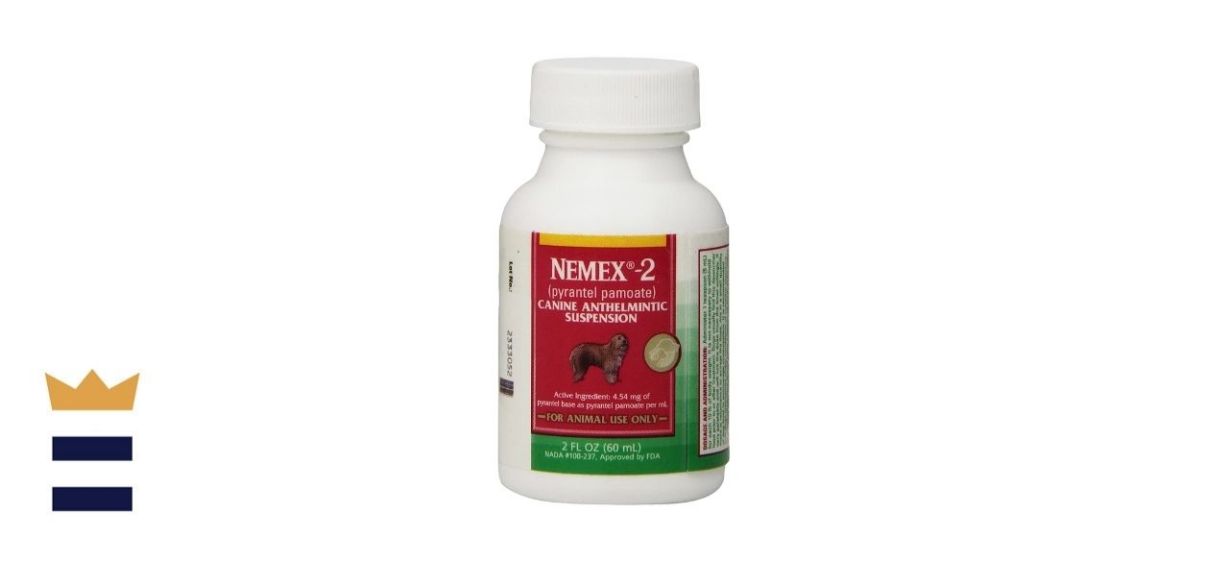Which dewormer for puppies is best?
Having a puppy is a lot of fun, but it requires a lot of initial maintenance. Because of this, it’s important to start on the right track by handling all of their health care needs as soon as possible.
Puppies are particularly susceptible to worm infestations, so you should routinely administer a good dewormer to prevent or take care of the issue. The best prescription-based dewormer for puppies and older dogs is the Sentinel Spectrum Chew for Dogs. It combats most worms and is easy to administer.
What to know before you buy dewormer for puppies
Targeted worms
Each dewormer targets specific parasites, so it’s important to know what type of worms your puppy has before getting the medicine. The most common worms include:
- Tapeworms: These worms are long and have segmented bodies. They can grow up to 8 inches. Dewormers kill them by breaking them up inside the intestines.
- Hookworms: The smallest type of worms, these primarily stay in the small intestine and grow up to an inch long. Most over-the-counter medications only target either adults or larvae.
- Roundworms: The most common type of worms in canines, roundworms look similar to spaghetti noodles and can be up to 5 inches long. Most dewormers work by dislodging them from the intestinal tract so the puppy can pass them.
- Heartworms: These worms can reach up to 12 inches in length and live around the heart. They’re treatable but typically require a prescription.
- Whipworms: These tiny worms reside in the colon region and are harmful to dogs. They require an antiparasitic medication specifically made to treat them at all stages.
- Ringworm: While not technically a worm, ringworm is caused by a fungus that can damage the outer layer of skin. Ringworm is treatable with topical prescription medication.
Over-the-counter vs. prescription dewormer medication
For severe infestations or chronic worms, you might need a prescription medication. For preventive care or minor infestations, an over-the-counter option is typically enough.
When in doubt, speak with a veterinarian to see what they suggest. A vet can run a fecal test to let you know what type of worms or parasites your puppy has. They can also recommend a specific brand of dewormer or write you a prescription.
Side effects
As with most flea and tick medications, dewormers usually have minimal to no side effects when used correctly. However, some puppies might experience the following:
- Reduced appetite.
- Vomiting.
- Increased salivation.
- Diarrhea.
These side effects do not last long and are rarely cause for concern. However, if your puppy starts having seizures or appears lethargic, bring it to a veterinarian for medical attention.
Symptoms of worms
According to PetMD, there are a few to tell if your puppy has worms. Symptoms commonly include:
- Dry or dull coat.
- Hair loss.
- Sudden weight loss.
- Significant changes in appetite.
- Diarrhea or vomiting.
- Worms in the stools or vomit.
- Large belly.
- Frequent cough.
- Lethargy.
- Scooting hindquarters on the ground.
Some of these symptoms can also indicate other potential health issues, so consult a veterinarian if your puppy starts having notable changes in its behavior or health.
What to look for in a quality dewormer for puppies
Ingredients
The active ingredients used in dewormers for puppies vary. Common ones are:
- Pyrantel pamoate.
- Fenbendazole.
- Praziquantel.
- Piperazine.
- Ivermectin.
Certain ingredients only target specific worms or parasites. For example, fenbendazole treats whipworms, hookworms, roundworms and some tapeworms. Meanwhile, praziquantel helps with flatworms.
Some dewormers only use natural ingredients. While these are generally effective as a preventive measure, they don’t work as well at treating existing infestations.
Form
Dewormers for puppies come in three main forms:
- Chewables: These are similar to soft treats in that they come in different flavors and are meant to be chewed and swallowed directly. You can also add them to food.
- Granules: Similar to chewables, granules look similar to tablets. They should be mixed with dry food.
- Liquid: These dewormers often come with a dropper you can use to measure out and administer a precise amount of the medication. For younger puppies, you can also add the liquid dewormer to a feeding bottle and administer it that way.
Some veterinarians will use an injection to treat infestations.
Frequency of use
How often you should use a dewormer depends on the type of medication and the age and weight of the puppy. For more serious infestations, a veterinarian can create a custom treatment schedule for you.
Most puppies should be treated for worms when they are 2 weeks old and then every two weeks after that until they are 12 weeks old. At that point, you should use a dewormer every month for three months until adulthood.
In most cases, you should continue to administer dewormer once every three months for the duration of your dog’s life. It’s also a good idea to get your veterinarian to perform a fecal test two to four times a year to make sure there are no worms present.
How much you can expect to spend on a dewormer for puppies
Most over-the-counter dewormers cost $10-$50. Prescription-level medications can cost upward of $120.
Dewormer for puppies FAQ
Can you use a cat dewormer on puppies?
A. Yes, if the packaging indicates the medication is safe for both.
How do puppies get worms?
A. Most canines get parasites from consuming feces or other substances that carry worm eggs. Some puppies are also born with worms due to their mother being infected. Certain types of worms, such as heartworms, are transferred through infected mosquitoes. Others, such as tapeworms, are commonly found in fleas.
What’s the best dewormer for puppies to buy?
Top dewormer for puppies
Sentinel Spectrum Chew for Dogs
What you need to know: This prescription dewormer can treat and prevent nearly any type of worm infestation, including heartworms, roundworms, whipworms and hookworms.
What you’ll love: It comes in a chewable form that’s easy to administer. It’s safe and effective for canines that are at least 6 weeks old and weigh between 2 and 8 pounds.
What you should consider: It does not treat fleas.
Where to buy: Sold by Chewy and PetSmart
Top dewormer for puppies for the money
What you need to know: Safe for dogs 6 weeks and older, this dewormer can prevent and treat common infestations.
What you’ll love: Formulated to be effective against roundworms, whipworms, Taenia tapeworms and hookworms, this medication comes in a powdered form you can mix into your dog’s food. For best results, use it three days in a row.
What you should consider: Some dogs dislike the flavor.
Where to buy: Sold by Amazon
Worth checking out
What you need to know: This liquid dewormer is made for puppies that are at least 2 weeks old as well as older dogs.
What you’ll love: Capable of treating large hookworms and roundworms, this medication is safe for most canines. It’s also easy to administer directly into your puppy’s food, water or mouth.
What you should consider: The container does not have a safety seal.
Where to buy: Sold by Amazon
Sign up here to receive the BestReviews weekly newsletter for useful advice on new products and noteworthy deals.
Angela Watson writes for BestReviews. BestReviews has helped millions of consumers simplify their purchasing decisions, saving them time and money.
Copyright 2022 BestReviews, a Nexstar company. All rights reserved.






